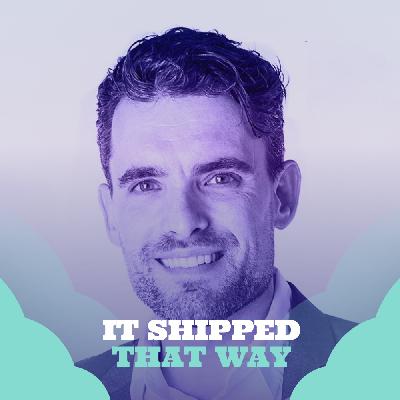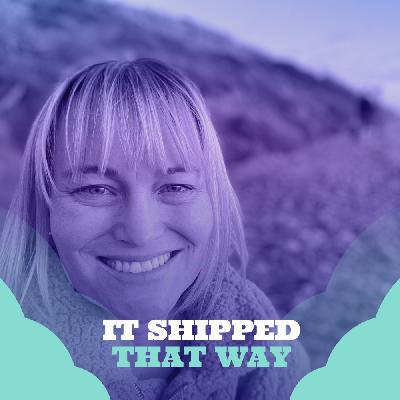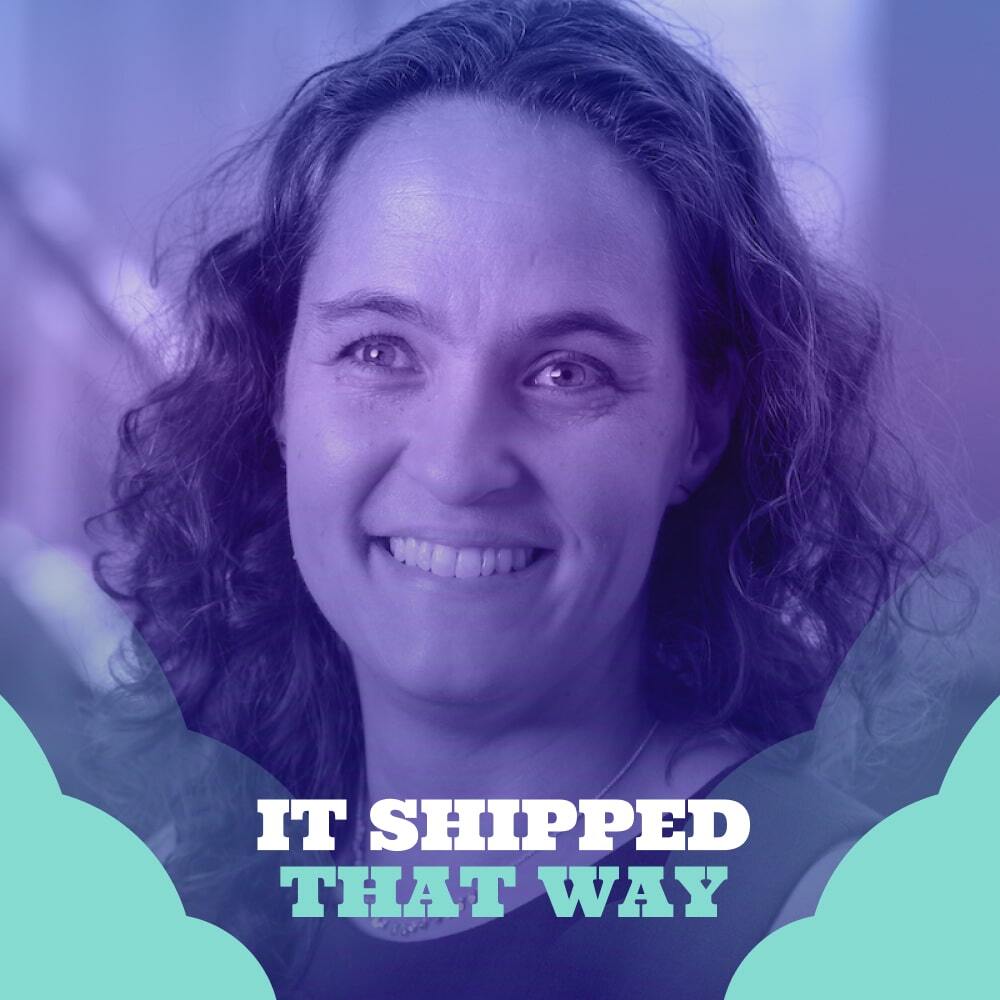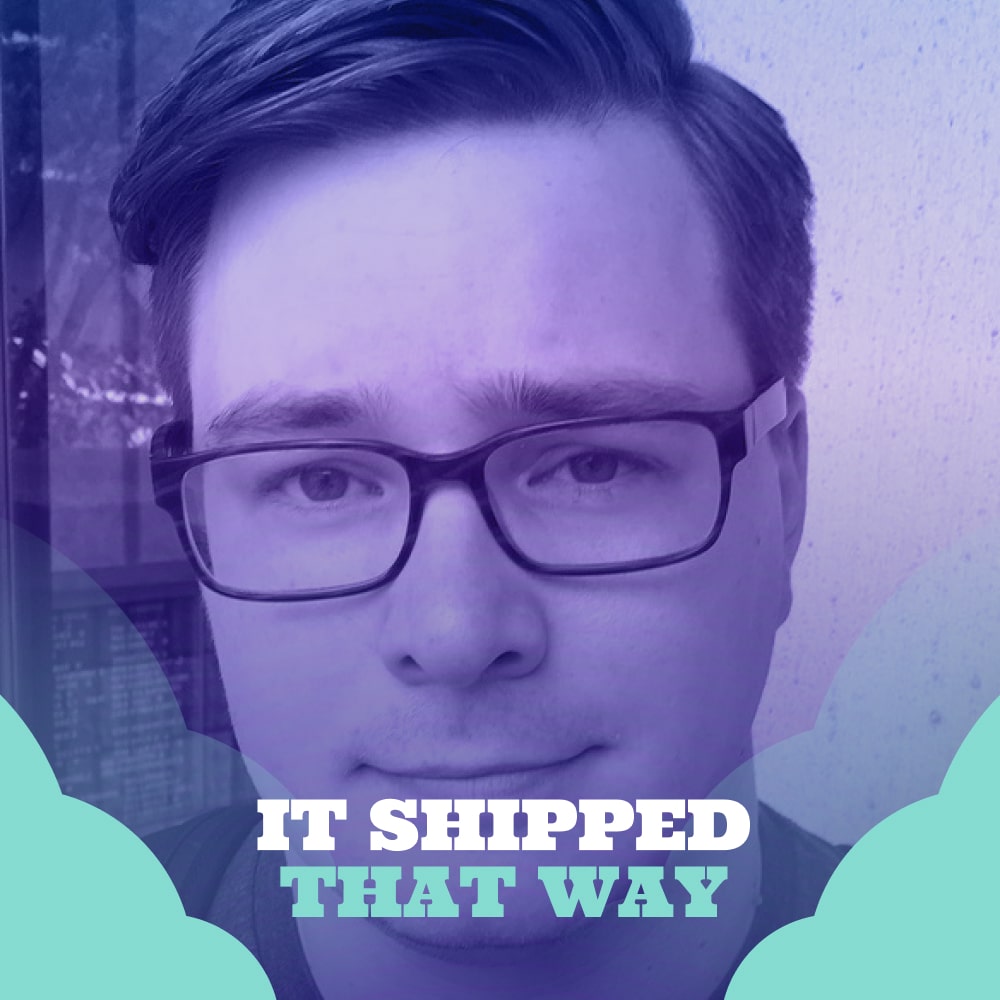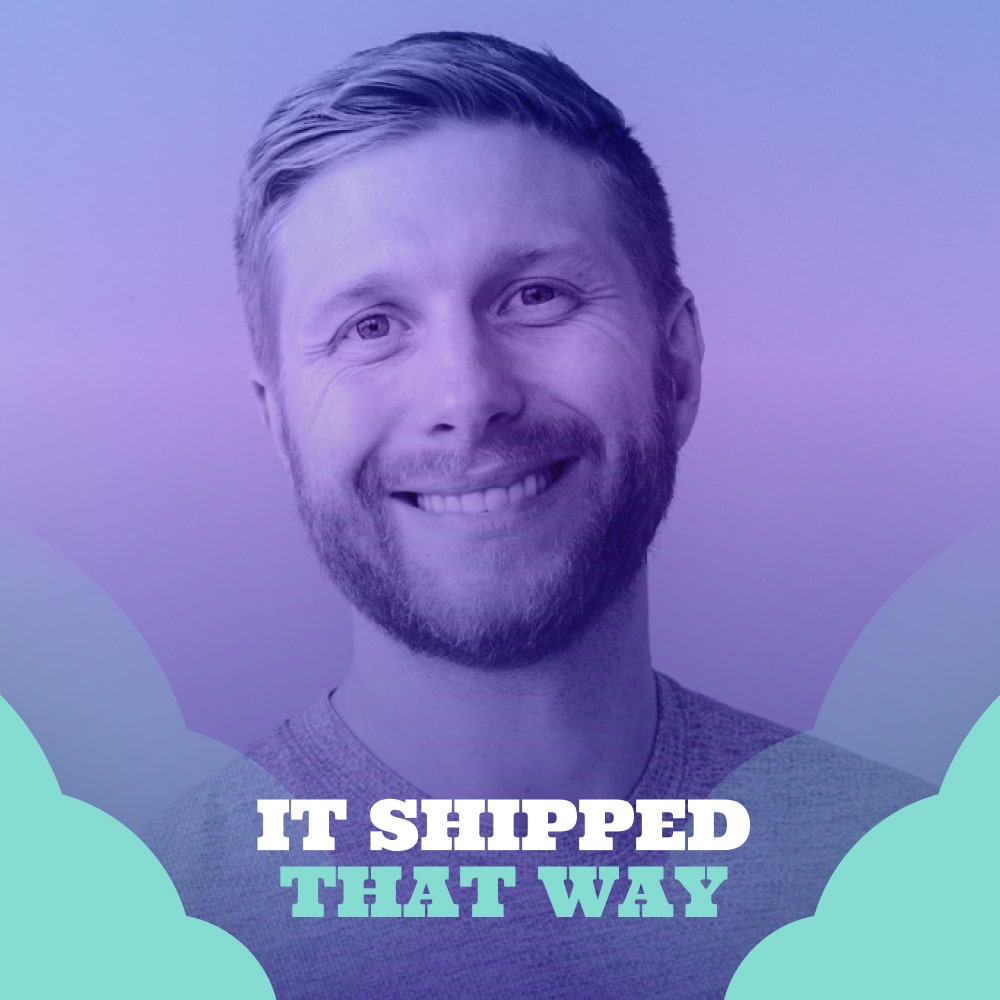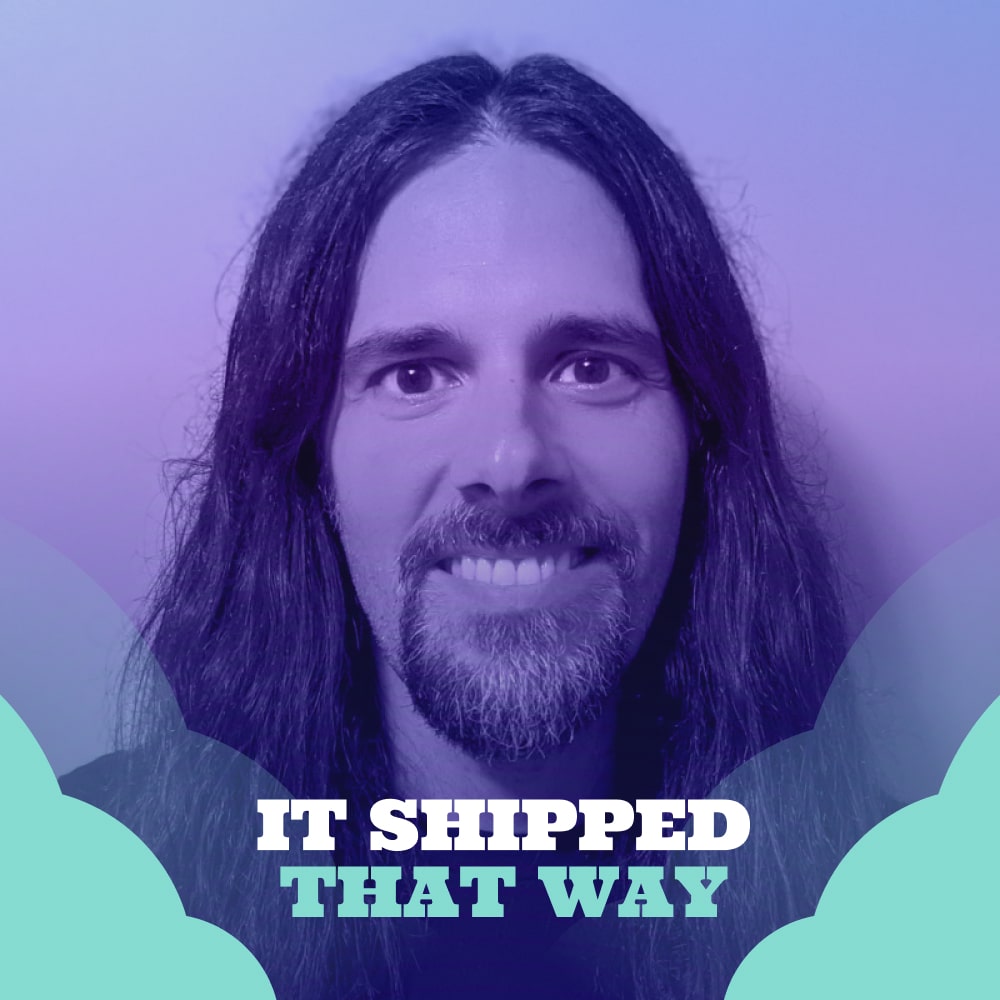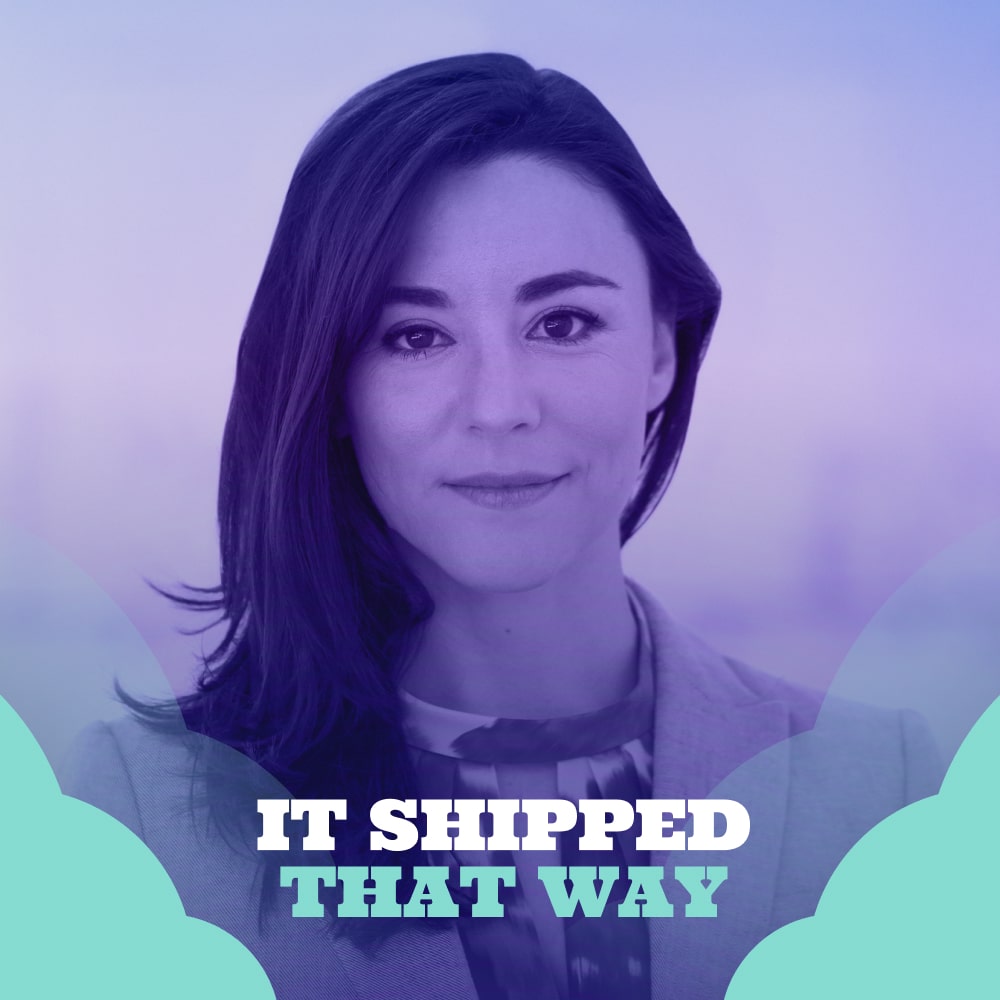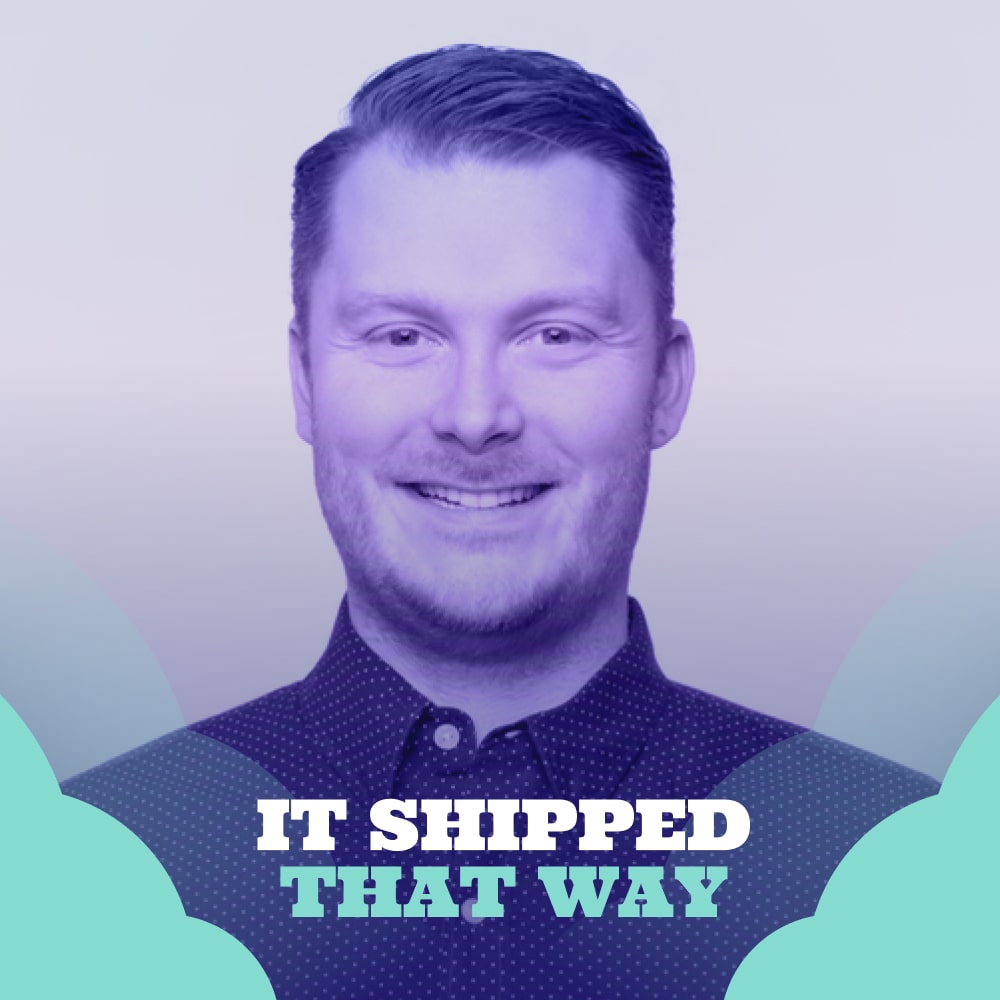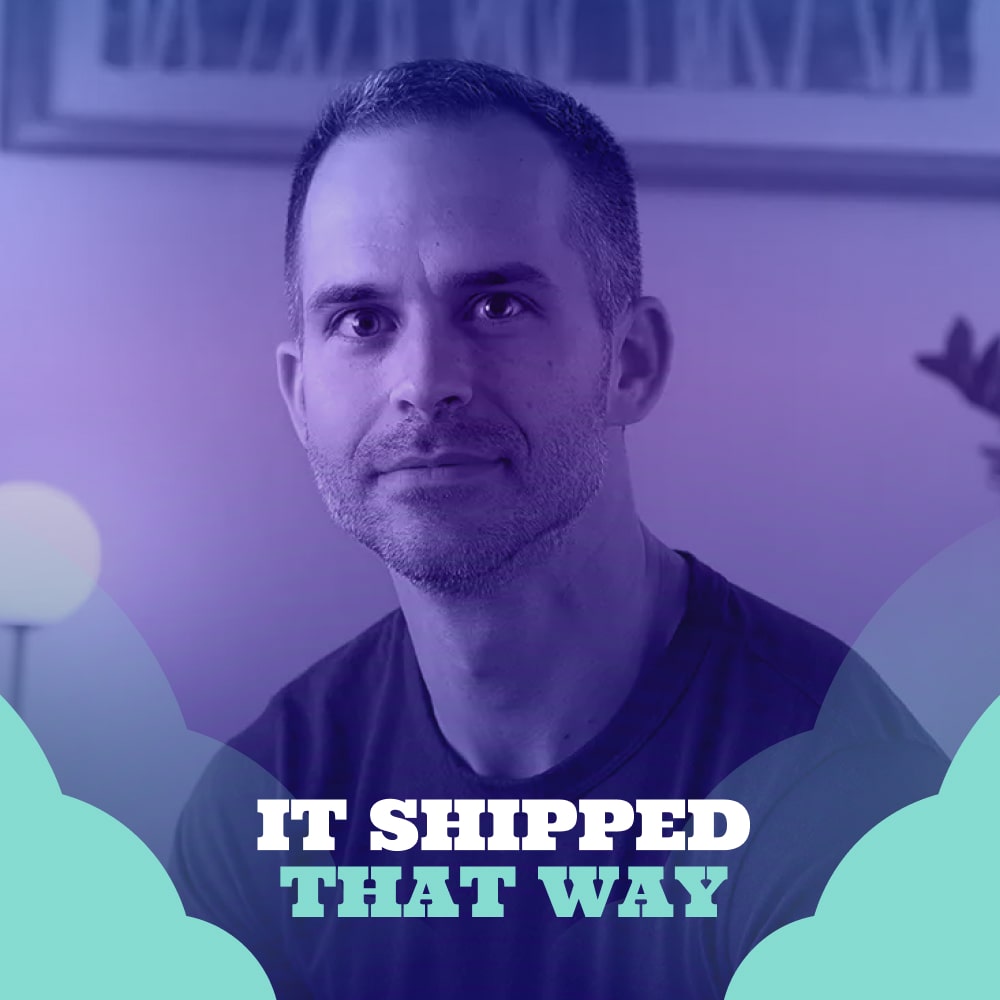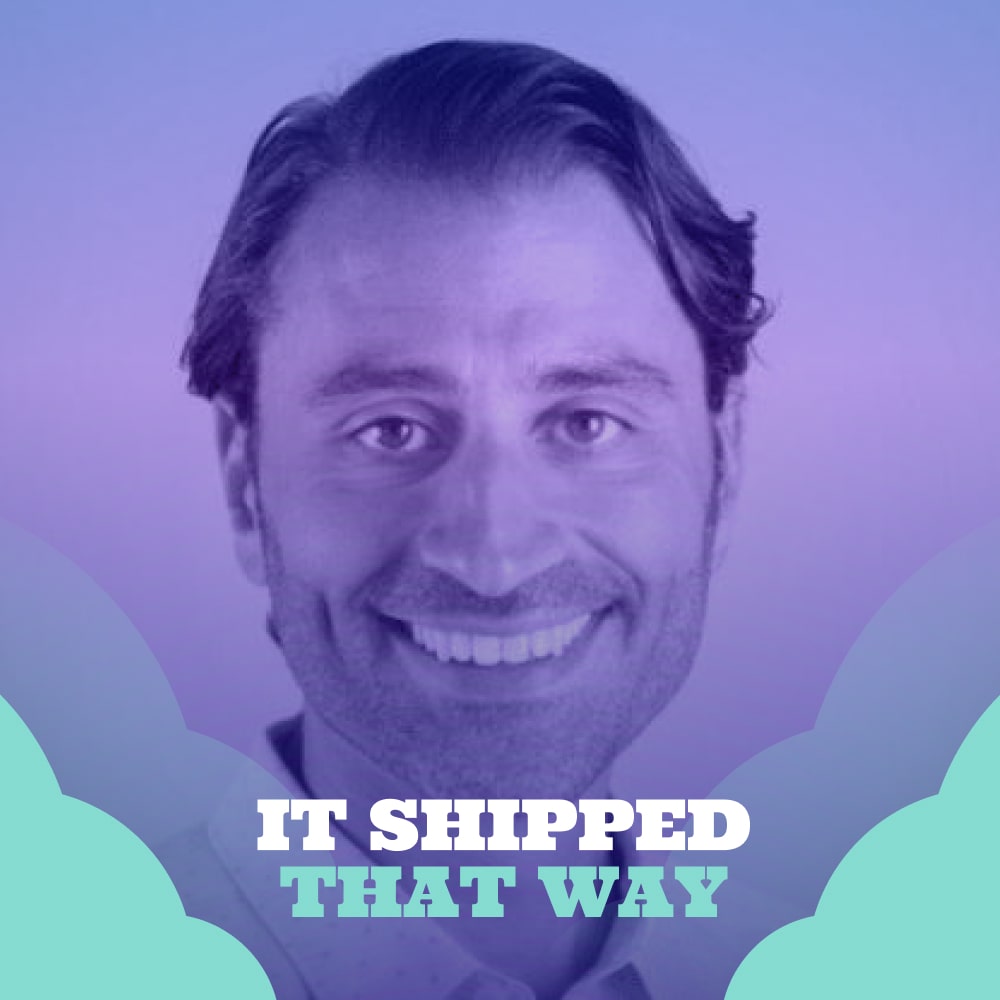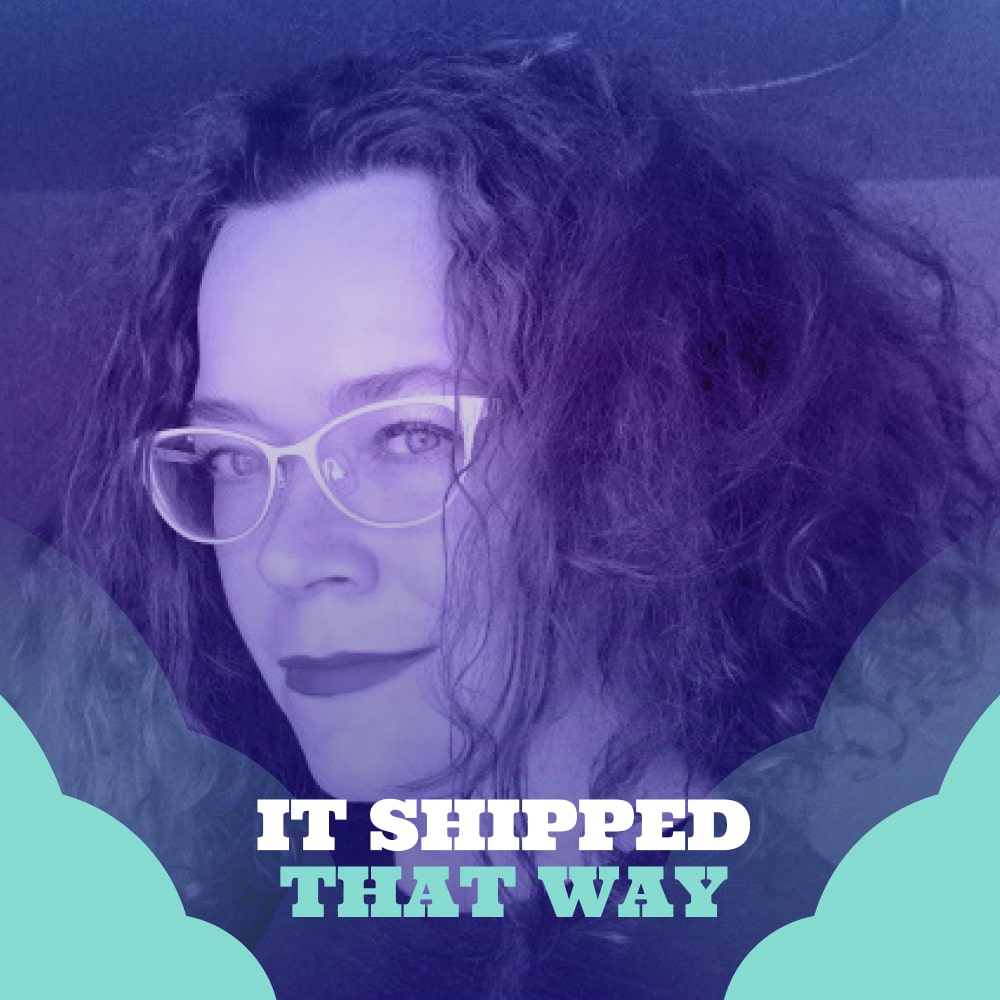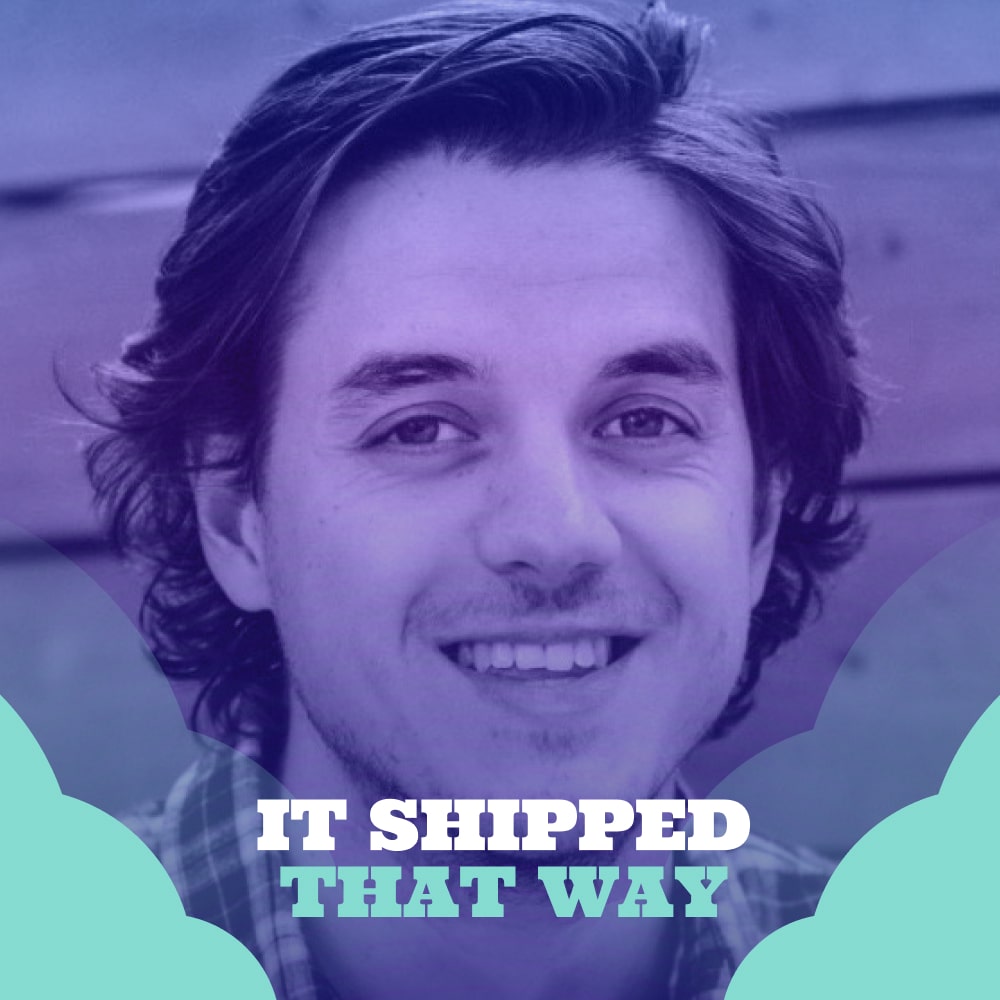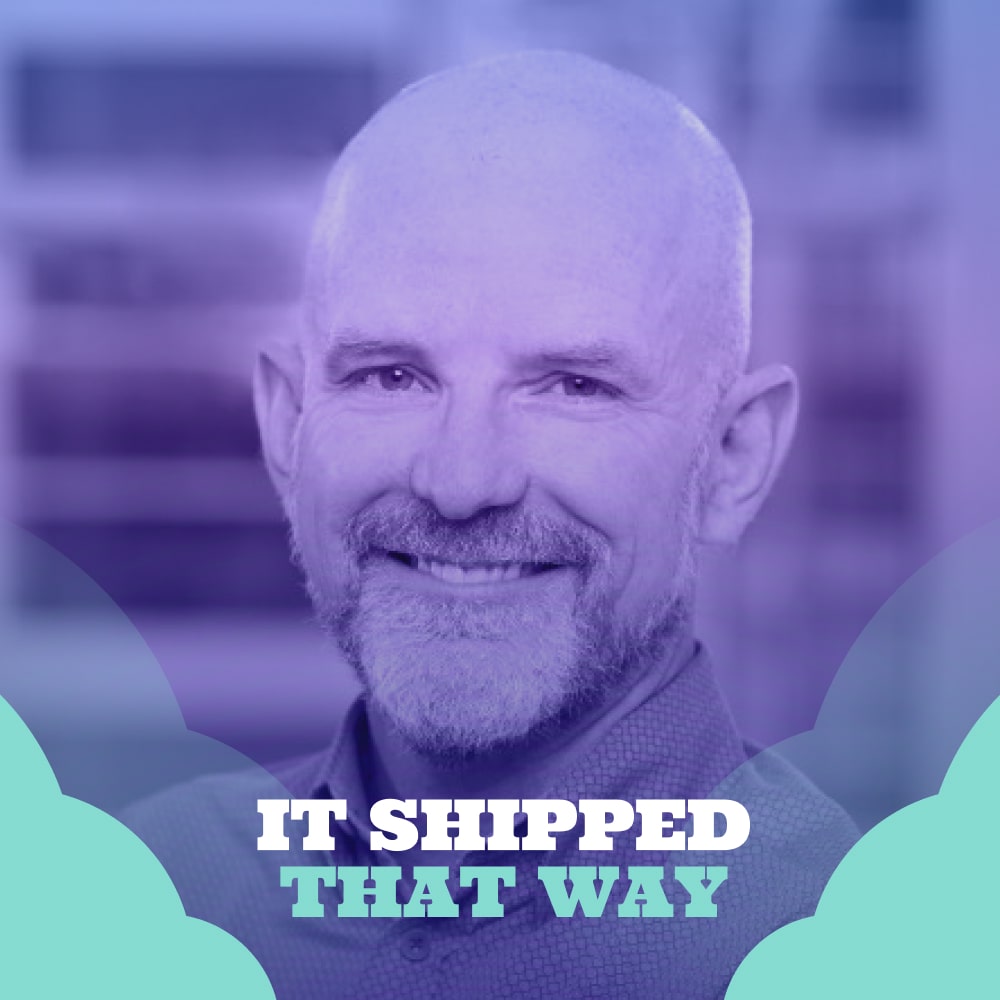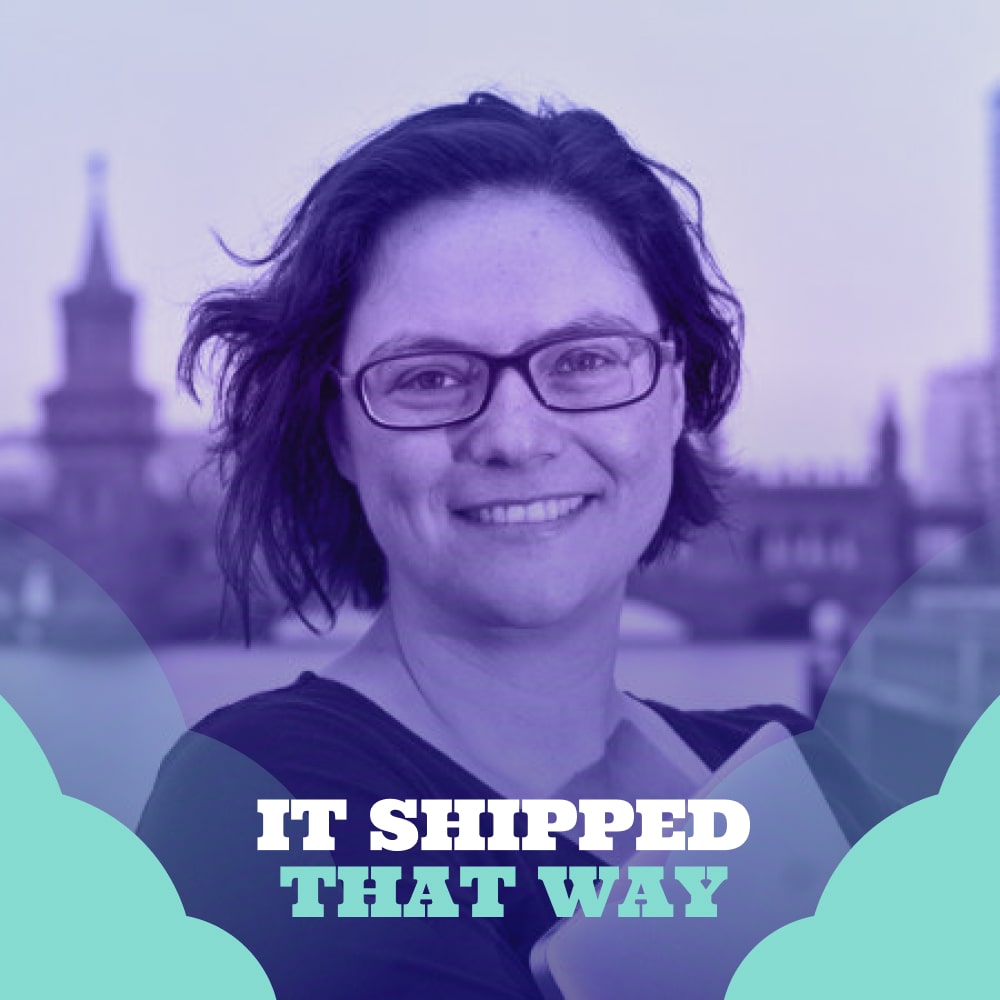Discover It Shipped That Way
It Shipped That Way

It Shipped That Way
Author: Steamclock Software
Subscribed: 7Played: 33Subscribe
Share
© Steamclock Software
Description
An interview series featuring product leaders in tech about the lessons they've learned building great products and teams. Hosted by Allen Pike, new episodes every 3 weeks. Supported by Steamclock Software and Forestwalk Labs.
35 Episodes
Reverse
Wealthsimple Co-Founder and CPO Brett Huneycutt shares lessons from building a 1500-person company recently valued at $10B. He relates the underlying wisdom of “Launch now”, how early dogfooding and short cycle times increase both speed and quality, attention to detail as a brand promise, where product decisions should be taste-driven vs. data-driven, and how to hire people you would want to work for.
Zapier’s first PM and now VP of Product Chris Geoghegan joins us to discuss the relationship between deterministic and LLM-powered automations, scaling a transparent and fully-remote company from millions in revenue to hundreds of millions, whether PM roles are becoming more or less important today, disrupting yourself before anybody else does, and the value of knowing SQL.
Jane App Co-Founder & Co-CEO Trevor Johnston shares lessons from building a vertical SaaS that now serves hundreds of thousands of clinicians worldwide. We discuss the geometric power of referrals, obsessing over churn, turning your customers into your salespeople, scaling product engineering past Dunbar’s number, transcending a Rails monolith, and finding the fun in 6 hours of Zoom meetings.
Lorilyn McCue, head of AI product at Superhuman, joins to share what she’s learned building LLM-powered products. She talks about how Superhuman executes on shipping delightful software, how to pursue both attention to detail and rapid iteration, optimizing your roadmap for learning, questions that are surprisingly easy (and hard) for LLMs, evaluation and testing of AI-powered features, and ruthlessly prioritizing the user.
Milun Tesovic, founder of Metrolyrics, Cmd, and Gitalytics – and now Parter at Expa – shares lessons learned building startups. We talk about building the largest lyrics site in the world, turning organizational dysfunction into startup ideas, solving problems without making people change their behaviour, getting acquired by Github a month after launch, making early hires on a product team, and how to get a great domain with one weird trick.
The Browser Company’s Head Of Engineering, Dolapo Falola, shares lessons from Google, Facebook, and Slack, and how they’ve informed his leadership of the team building Arc. He shares about the rush to launch Stories at Meta, reinventing the browser with Arc, finding work that energizes people vs. finding people energized by the work, “working out loud” for velocity, the challenge of bringing Arc to Windows, rewarding complexity vs. business impact, and playing the long game to hire exceptional talent.
Cate Huston joins to talk about her new book, The Engineering Leader. She shares why she wrote a book, leadership problems endemic to fast-growing organizations, why career growth is more than promotions, coachability, levelling up your hiring pipeline, how hiring “bars” can go wrong, and why energy management matters more than time management.
Johnny Rodgers, one of Slack’s founding engineers, shares stories and lessons from building Slack. He shares Slack’s origin, the art of extreme responsiveness to customer feedback, how features like threads and reacji came together, Slack’s positioning and north star, product-led growth as a path to building startups, and how to have an outsized impact in a scaling organization.
Teresa Torres, author of Continuous Discovery Habits, joins to share lessons from her popular and acclaimed book. We talk about the benefits of constantly talking to customers, why it can be worth seeking delight rather than strictly building products in terms of problems, how to avoid choosing perverse outcomes and metrics, and how to get the truth from customers – despite their aspirational overconfidence.
Luke Hutscal, Principal Engineer at Clio – formerly of Shopify and Testflight – joins to talk about finding ways to learn rapidly, the downsides of a mercenary mindset, spending time with people who intimidate you, building a coaching village, making wrong things look wrong, choosing boring technology, resume-driven development, and putting in the reps to get great at hiring.
James Clift, Founder and CEO of Durable and VisualCV, joins us to talk about helping folks build great businesses, staying long-term optimistic yet short-term pessimistic, choosing between exciting ideas vs. clearly profitable ones, the distraction of “fake work”, getting good at rapidly trying and killing ideas, lessons learned from two years of building on LLMs, and the longevity of non-chat workflows.
Eric Amodio, creator of GitLens, GitKraken CTO, and former Principal Engineer on VS Code, joins us to talk about founding products by scratching your own itch, building GitLens from an idea to tens of millions of users, the audacity of charging for software, the origins of github.dev and Copilot at Microsoft, LLMs as a new layer of abstraction for developers, and how GitKraken is helping engineers understand large codebases faster.
Merci Grace, CEO and co-founder of Panobi, and former partner at Lightspeed Ventures and first Head of Growth at Slack, shares lessons about growth as a discipline, pitfalls of fundraising and her “Marauder’s Map” to raising capital, best practices for starting and scaling growth teams, and her vision for making metrics and growth tooling far better.
Ian Crosby, founding CEO of Bench and now Teal, talks building Bench from zero to hundreds, how vertical SaaS is transforming SMB startups, what it really takes to become highly profitable, why Teal hires for “boring competence”, paying highly for top talent, the psychology of firing, and the limits of culture docs.
Paul Lambert, CEO and founder of Quilt and former Director at Google’s Area 120, joins Allen to talk society-scale problems, why searching for product-market fit is overrated, the power of building a better mousetrap, why the “internal incubator” model usually fails, how modern hardware startups iterate rapidly, and why different cities lend themselves to different startups.
Dennis Pilarinos, founder of Buddybuild and now Unblocked (and former Director at Microsoft, Amazon, and Apple) shares what he’s learned about product leadership. We talk about why you should build a product that is hard, how providing support is key to product culture, staying deeply curious about what’s not working, cutting down recurring meetings, and how startups with distribution outcompete the giants.
Honeycomb.io co-founder and CTO Charity Majors joins Allen to share what she’s learned growing Honeycomb from idea to 170-person distributed company, including what goes into being a good manager beyond supporting your reports, how to build a team that feels supportive and safe while still keeping boundaries and limits, systems thinking for teams and cultures, the difference between generic company values and ones that take a stand, and why having a healthy culture is more important than having a novel one.
Ada co-founder David Hariri joins Allen to talk about an audacious product discovery process that kicked off a 250-employee startup, limitations of hand-scripted workflows, strengths and weaknesses of LLM techniques like code execution, RAG, and function calling, and how support automation may create whole new business models.
Michael Lopp, aka Rands, joins Allen to talk about the fundamental need for growth, finding your team’s core motivations, the value of writing for developing clear thinking, the joys and perils of writing a book, the art of a compelling presentation, habits for editing and refining writing, and fostering clarity of responsibility – and curiosity – on your team.
Tiffany Conroy, former VP of Engineering at SoundCloud, shares what she’s learned about where new engineering managers stumble and how to support them, considering whether you want to be a manager at all, the value of explicitly asking those around you what success means, the power of having the confidence to say “I don’t know”, coaching managers through their first case of underperformance, how rigid role definitions hold back folks that perform both product and engineering work, the power of the Six Thinking Hats for making intense decisions, and the cultural responsibilities of senior leadership.




